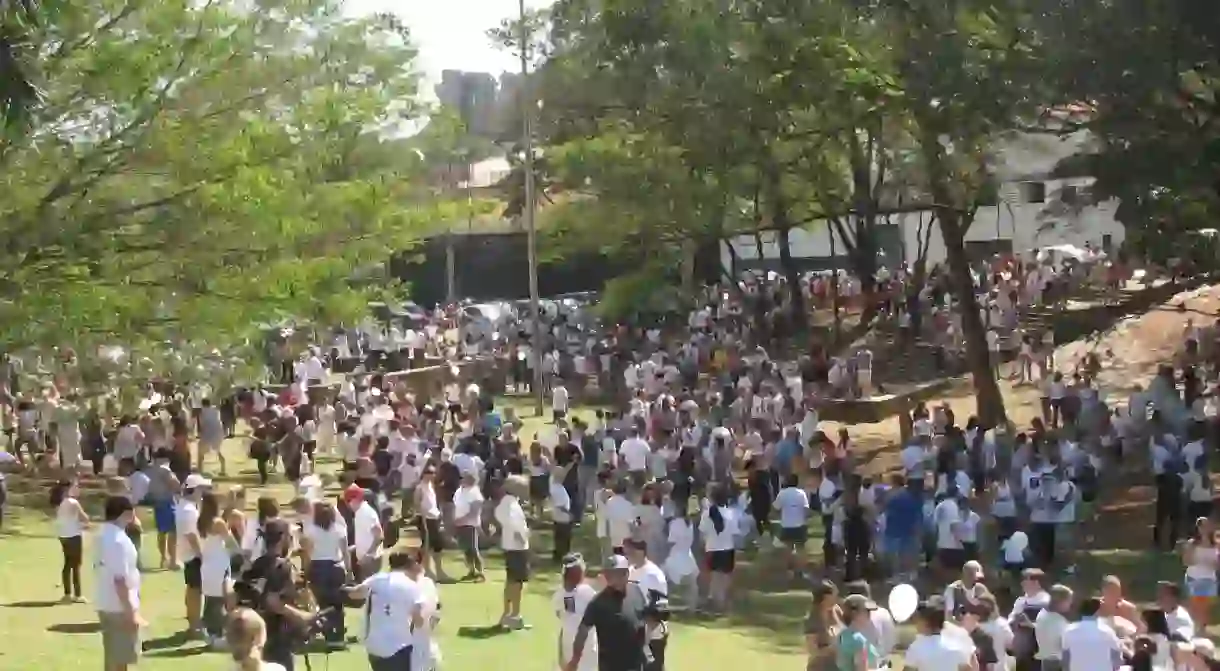Traditions and Customs Only Locals In São Paulo Can Understand

Every city has its own unique customs and traditions which may seem at times odd or incomprehensible to outsiders looking in, but to locals are perfectly normal. São Paulo, the largest city in South America, is no different. Here there are local traditions and customs that only a Paulistano or someone who has lived in the city for a while can understand. Below is list of some of these customs and traditions.
Olive oil on pizza
Having the largest Italian communities in the country, Paulistanos are crazy about pizza. There are over 6,000 pizza places in the city serving more than one million pizzas per day. But unlike other places in Brazil, Paulistanos will cringe if you ask them for ketchup or mustard to add to your pizza. Here only olive oil is allowed.

See a blue VW Fusca (VWBeetle), hit the person next to you
This tradition is said to date back to the 1960s and the US. While in Brazil fusca is a made-up name which does not mean anything, in the US the name “beetle” relates to an insect. Since Paulistanos are known to incorporate many foreign customs, many people in the city called the small car a bug and the instinct was to “crush a bug.” The color blue comes from another US anecdote which claims that Henry Ford, after stipulating in 1914 that all Ford-T models were supposed to be black in color, was upset with one of his workers after the man mixed in the wrong colors and the entire lot of cars came out blue. Ford gave the man a slap on the back in front of the entire factory and after that every worker who saw a blue car would slap the other one.

Waze/Google map on cell phone
Being an extremely big city, one can easily get lost in São Paulo. Before cell phones were invented it was a custom for every glove box to carry the over-300-page city guide book with maps of all city streets. Now instead of the heavy guides, people download map apps on their cell phones to get around.

Street markets for pastel
Many of the people who wander the many daily street markets in São Paulo are not there to buy the fresh produce. They are in fact there to eat the pastel, the deep fried pastry filled with cheese, pepperoni or other toppings. There is a pastel stand in each and every street market in São Paulo, usually packed with food shoppers and non-shoppers alike.

Call everyone by the first syllable of their name
Paulistanos have a custom of calling everyone only by the first syllable of their name, so Maria becomes Ma, Roberto is Ro, and Silvia would be Sil. It does not matter if the name is short or long, the first syllable is all that is said when calling a friend in São Paulo.
Mashed potatoes on hot dog
While Paulistanos frown on Brazilians from other parts putting ketchup and mustard on their pizzas, they have the tradition to put mashed potatoes and potato chips on their hot dogs. Most hot dog stands carry a bowl of mashed potatoes so customers can add the topping to their dog.
http://instagram.com/p/uY2Np2s3_e/
Putting the word “meu” in front of every sentence
In Portuguese the word “meu” means my or mine. In São Paulo, it is used as an abbreviation of “meu amigo” – my friend – or an interjection and put in front of any and every sentence that is said, even if the placement does not make sense.
One kiss instead of two
While in most parts of Brazil two, or even three kisses, on the cheek are usually given when greeting a female friend, in São Paulo only one is necessary. Paulistanos get confused when someone goes in for another kiss on the other cheek.














